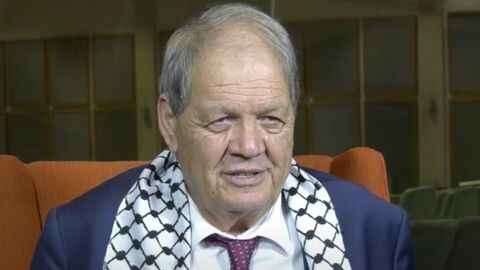Mahmud Abbas, the president of Palestine, formally announces that Rawhi Fattouh will take over as president in the event of a vacancy.
Mahmud Abbas, the president of Palestine, will be temporarily replaced by Rawhi Fattouh when the position becomes available.
Despite his tenure as leader of the Palestinian Authority, Abbas, 89, remains in power and has rejected calls to name a vice president or successor.
In the event of a power vacuum, the Palestinian Authority is assumed by the speaker of the Palestinian Legislative Council (PLC), according to current Palestinian law.
However, after more than ten years of hostilities between his party, Fatah, and Hamas, which overthrew the Palestinian Authority in Gaza in 2007, Abbas formally disbanded the PLC in 2018, which was where Hamas held a majority.
Abbas said in a proclamation Wednesday that if the post became vacant, he would be temporarily replaced by 75-year-old Rawhi Fattuh, the chairman of the Palestinian National Council.
“If the position of the president of the national authority becomes vacant in the absence of the legislative council, the Palestinian National Council president shall assume the duties… temporarily,” it read.
“A delicate period in the homeland’s history”
The decree further stipulated that elections must be held within ninety days after the transition phase. It said that a “force majeure” situation could result in an extension of this date.
The Palestine Liberation Organization (PLO), which has more than 700 members from both the Palestinian territory and other countries, has the PNC as its parliament.
The PNC deputies are appointed rather than elected.
The “delicate stage in the history of the homeland and the Palestinian cause” is mentioned in the edict, which coincides with Israel’s ongoing conflict in Gaza.
Relationship tensions between Hamas and Fatah have been shaped by political and ideological differences.
The proclamation was issued the same day that Israel and Hezbollah reached an agreement that resulted in a ceasefire in Lebanon.
Economically struggling, the Palestinian Authority cannot pay its civil servants and faces threats from Israeli far-right ministers who want to absorb all or part of the occupied West Bank, an aim that Benjamin Netanyahu’s government is making less and less covert.






